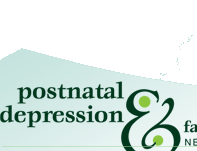 |
 |

|
|
|

TRICYCLIC ANTIDEPRESSANTS FACTSHEETTRY - SIGH - CLICK
This information is not a replacement for full discussion of risk and benefits with your doctor .Examples Include: Amitriptyline (Amitrip), Nortriptyline (Norpress), Doxepin (Anten), Trimipramine ( Surmontil, Tripress), Desipramine (Pertofran), Dothiepin (Dopress) and Clomipramine ( Clopress). Principal Uses: Depression and Anxiety disorders. Cost: Fully subsidised on doctors prescription Dose: Varies depending on medication. Possible Side Effects: Interactions: Should not be combined with a monoamine oxidase inhibitor (MAOI), due to risk of serotonin syndrome or malignant neuroleptic syndrome. Should not be given within two weeks of discontinuing a MAOI. Similarly it should not be combined with St. Johns Wort. It can also interact with antihistamines and cough and cold medicines containing antihistamines or dextromethorphan. Use in Pregnancy: Category C ( except Imipramine which is D) Category C indicates that either studies in animals have revealed adverse effects on the foetus (teratogenic or embryonic or other) and there are no controlled studies in women or studies in women and animals are not available. Drugs which due to their pharmacological effects have cause or may be suspected of causing harmful effects on the foetus or neonate without causing malformations. Drugs should be given only if the potential benefit justifies the potential risk to the foetus. Category D indicates that there is some positive evidence of human foetal risk, but the benefits from use in pregnant women may be acceptable despite the risk (e.g., if the drug is needed in a life-threatening situation or for a serious disease for which safer drugs cannot be used or are ineffective).
Use in breastfeeding: Category L2 The L2 category refers to medications which have been studied in a limited number of breast feeding women without an increase in adverse effects in the infant. And/or, the evidence of a demonstrated risk which is likely to follow use of this medication in a breast feeding woman is remote. |
Home | About us | Baby | Books & Links | Contact Us | Culture | Fact Sheets | Family/Whanau | Fathers | Glossary | Medical Info | Medications | Post Natal Depression | Pregnancy | Q&A | Related Conditions | Stories | Support | Treatments |